Below you are given a picture of a quadratic, you must label the parts of the quadratic that have an arrow pointing to them.
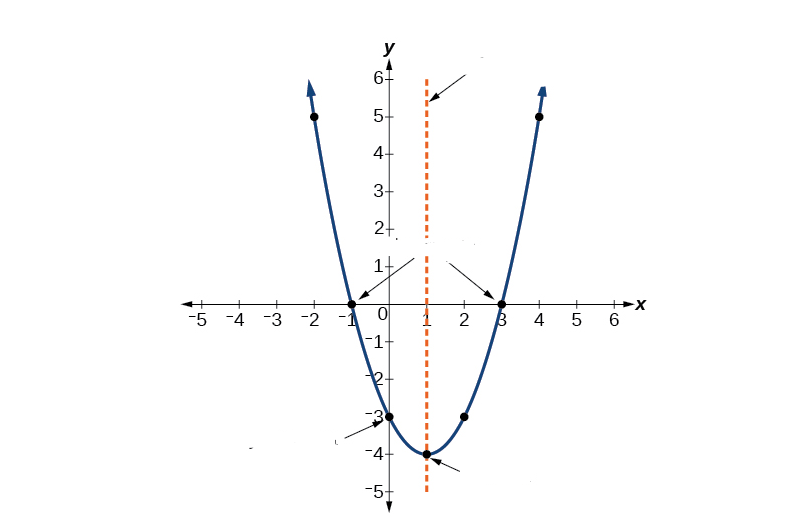
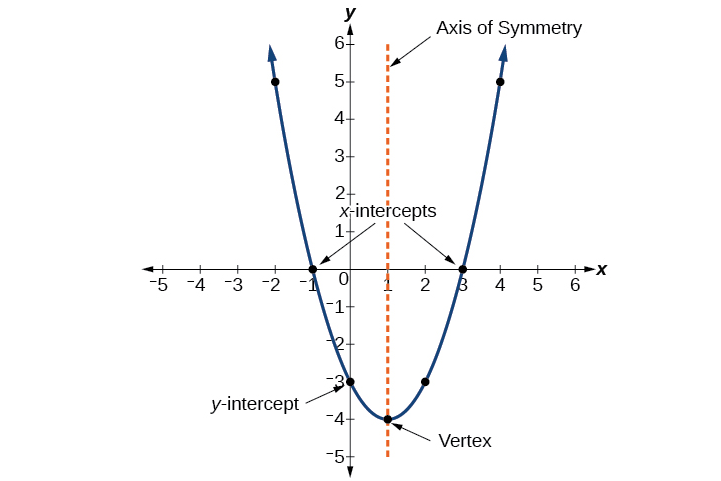
What is the Lead Coefficient and Degree of the following polynomial:
y=x^8+2x^7+3x^6+4x^5+5x^4+6x^3
Degree: 8
Lead Coefficient: 1
By the Fundamental Theorem of Algebra, how many roots should the following equation have?
y=x^10-x^4-5x^3+11x^11-1
11, because the highest degree that the equation has is 11!
Find the horizontal asymptote of the following rational function:
y = (3x^2+4x+2)/(4x-1
there is no horizontal asymptote!
Convert the following Standard form Equation into its Factored form Equation
y=x^2-10x-24
y = (x-12)(x+2)
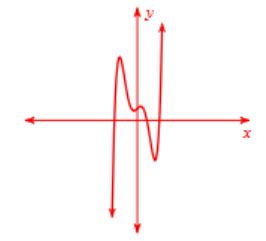
Given the graph above, list the end behavior of the graph as:
x approaches infinity, f(x) approaches ____________
x approaches negative infinity, f(x) approaches ________
x approaches infinity, f(x) approaches infinity
x approaches negative infinity, f(x) approaches
negative infinity
Using the Fundamental Theorem of Algebra, how many real roots and imgainary roots does this function have?
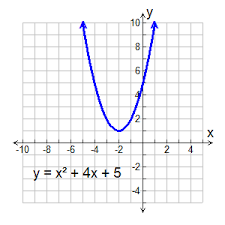
2 imaginary and 0 real, because the graph never touches the x axis
Find the horizontal asymptote of the following rational function:
g(x) = (2x+3x^2-1)/(3x+4-3x^2
y = -1
Convert the following equation from Standard form to Vertex form:
y=x^2-10x+16
y = (x-5)^2-9
Given the function, list the zeros of the function, and their multiplicities
g(x)=x(x-3)^5(x+3)(x+4)^2
Zero at 0, with multiplicity 1
Zero at 3, with multiplicity 5
Zero at -3, with multiplicity 1
Zero at -4, with multiplicity 2
-sqrt(34)+4,567i
Find the Conjugate of the following term
-sqrt(34)-4,567i
Factor the following rational function:
y=((x^2+12x+36))/(x^2-3x-28
f(x) = ((x+6)(x+6))/((x-7)(x+4)
Write the equation of the line (in any 3 forms)
Standard form:
y=x^2-8x+12
Factored form:
y=(x-2)(x-6)
Vertex form:
y=(x-4)^2-4
Given the graph below, write the equation to this graph in factored form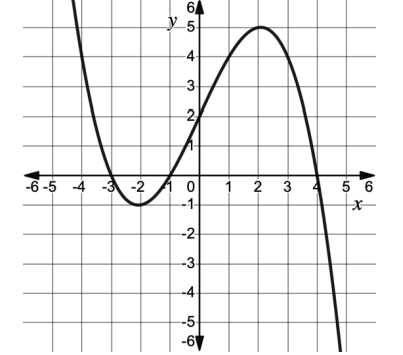
(x+3)(x+1)(x-4)
(-3+5i)(-3-5i)
Simplify the following terms by multiplication
34
y = ((x+4)(x-3))/((x+4)(x-4)
List any vertical asymptotes the rational function has:
There is a vertical asymptotes at x = 4
y = 2x^2+12x+12
Convert the following equation from Standard form to Vertex form
y = 2(x+3)^2-6
Given the equation below, list the end behaviors of the graph:
as x approaches infinity, f(x) approaches _______
as x approaches negative infinity, f(x) approaches______
R(t)=−0.037t4+1.414t3−19.777t2+118.696t−205.332
a negative lead coefficient and an even degree means:
as x approaches infinity, f(x) approaches negative infinity
as x approaches negative infinity, f(x) approaches negative infinity
Find the complex roots of the following quadratic:
T(x)=x^2+4x+5
-2 + i and -2-i
List any zeros the rational function has:
y = ((x+5)(x-4))/((x-3)(x-4)
There is a zero at (-5,0)
